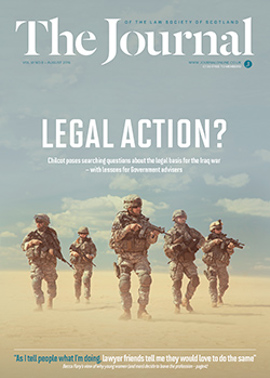Doping and Rio – the final say?
The Court of Arbitration for Sport (CAS) has finally issued its decision to uphold the ban on Russian track and field athletes from Rio 2016 over the country's alleged state-sponsored doping regime. It follows the suspension in November 2015 of the All Russia Athletics Federation from membership of the sport's world governing body, the International Association of Athletics Federations (IAAF), after an independent report found evidence of widespread doping.
The Russian Olympic Committee (ROC) and 68 Russian athletes requested that arbitration proceedings commence before CAS to challenge the IAAF’s initial findings. The CAS has dismissed both the request for arbitration filed by the ROC and all 68 claimant athletes, and the appeal filed by 67 of the same athletes against the IAAF decision to consider them as ineligible for the Olympic Games in Rio.
Separately, the International Olympic Committee is considering calls to ban all Russian competitors from the Olympic Games following a second report into state-sponsored doping.
Competition rules
What was the basis of the request for arbitration to the CAS? Following the IAAF suspension, the ROC and the claimant athletes asked the CAS to review specific legal issues in respect of the validity, enforceability and scope of IAAF competition rules. The ROC also sought a ruling that any Russian athlete who was not currently the subject of any period of ineligibility for the commission of an anti-doping rule violation be declared eligible to participate at the Olympic Games. There was a further separate application from 67 Russian athletes who filed an appeal against the IAAF decisions to deny applications from these athletes to compete internationally as "neutral athletes" at the Games.
On 21 July the CAS panel confirmed the validity of the IAAF’s decision in respect of the application of its rules, which state that athletes whose national federation is suspended by the IAAF are ineligible for competitions held under the IAAF rules, in accordance with the Olympic Charter, unless they satisfy specific criteria. Accordingly, since the All Russia Athletics Federation is currently suspended from IAAF membership, its athletes do not satisfy the IAAF conditions to participate in competitions. These competitions include the athletics events at the Olympic Games in Rio.
The IAAF was "pleased CAS has supported its position", saying the judgment had "created a level playing field for athletes".
Individual clearances
However, the ROC is entitled to nominate Russian track and field athletes who fulfil certain criteria and are eligible to compete under the IAAF competition rules, including being repeatedly tested outside their homeland. Those athletes could therefore compete in Rio as neutrals. At least two Russian athletes – 800m runner Yuliya Stepanova and long jumper Darya Klishina – have already taken advantage of that decision, and the CAS ruling has cleared the way for more to follow.
In view of the urgency of the matter, the CAS panel has issued only its decision, which is unanimous, without the grounds. The full arbitral award, including the grounds for the panel’s decision, will be issued as soon as possible.
Commitment
The CAS decision clearly demonstrates a commitment to targeting doping in sport. However the impact on the Rio Games is likely to be significant, not least commercially, given the sporting powerhouse that Russia is, and its potential impact on sponsorship deals in not having the Russian athletes compete.
The Russian authorities have already said they are planning on contesting the CAS decision.
The Games begin on 5 August.
In this issue
- Human rights: preparing the UK's report card
- Doping and Rio – the final say?
- Mr v Mrs: the real mediation world?
- GDPR – still coming to the UK
- eDisclosure and Brexit: GDPR come what may?
- Tom Axford, 7 March 1960-12 May 2016
- Reading for pleasure
- Opinion: Billie Kirkham
- Book reviews
- Profile
- President's column
- Pilots chart a course
- People on the move
- Thiepval: what does that mean to you?
- Iraq: a basis in law?
- Big Brother, or benign assistance?
- Activist banking
- Hostility enacted – a view from practitioners
- Bankruptcy reconstructed
- No-blame redress: a blueprint?
- Moorov: bridging the gap
- Ten years of cohabitation claims
- Employment law post-Brexit: what change is likely?
- Mine, and they're private
- Brexit: is parting sweet or sorrow for pensions?
- Scottish Solicitors' Discipline Tribunal
- Brexit? Don't panic...
- Law for heroes
- Law reform roundup
- Vulnerable witnesses: LJC alert
- Power to whose elbow?
- It isn't about the babies!
- Covered by the terms?
- Ask Ash
- The power of culture
- Properly engaged
- Paralegal pointers






